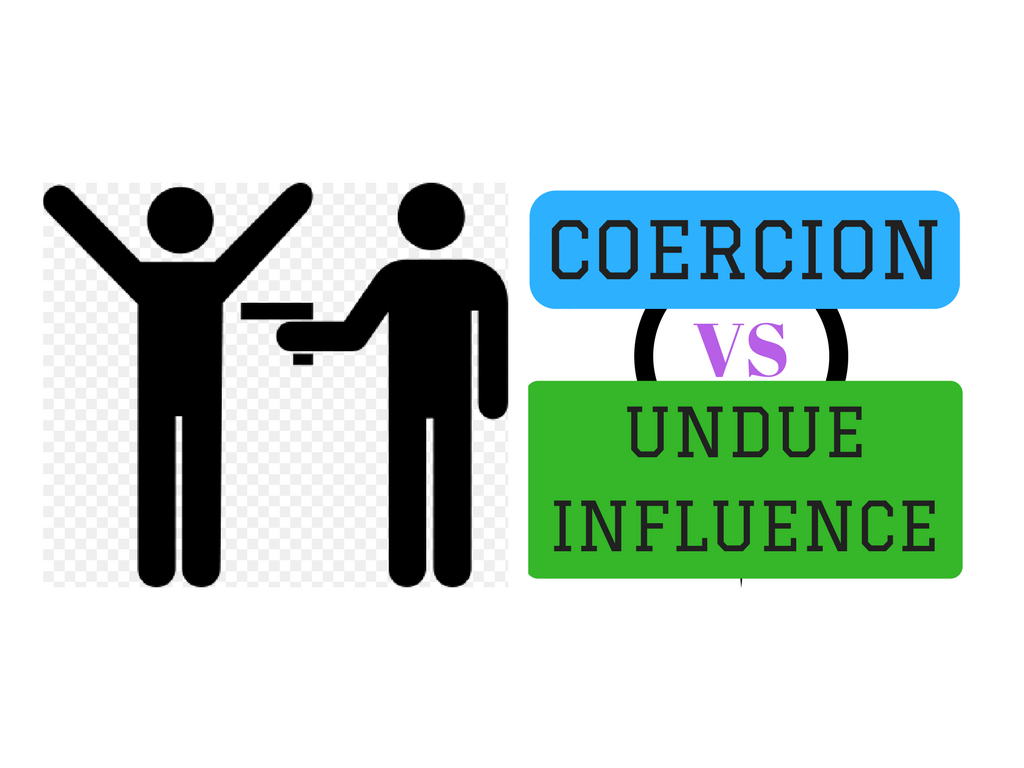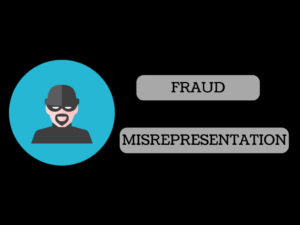Coercion and Undue Influence are the terms related to the Contract between two or more persons. To enter into the contract, The parties required to get each others consent. Some people use different types of unfair practices to obtain the consent of another party. These unfair practices are as follows:
⦿ Coercion
⦿ Undue Influence
⦿ Fraud
⦿ Misrepresentation
⦿ Mistake
This article mainly focuses on differentiating the actions of Coercion and Undue Influence. These two actions violate the Indian penal code and the people who commit coercion is punishable as per Indian Penal Law.
COERCION
According to Sec.15 of the Indian Contract Act, “Coercion is the committing or threatening to commit any act, forbidden by the Indian Penal Code or the unlawful detaining or threatening to detain any property, to the prejudice of any person whatever, with the intention of causing any person to enter into an agreement.”
Coercion is Forcing a person to enter into a contract by threatening him or by using pressure on him. Indian Penal Law states that any consent which is gained from the party by coercion becomes a voidable contract.
Any act of Coercion has one or more of the following characteristics:
⦿ Obtaining the consent by Doing any act which is prohibited by the Indian Penal Code.
⦿ Threatening to commit any actions which are prohibited by the Indian Penal Code.
⦿ Holding the property of the person unlawfully or threatening to detain the property.
⦿ Threatening to commit suicide if you don’t enter into a contract.
⦿ Threatening to file a false case on the person.
EXAMPLE
Mr.X wants to buy a property of Mr.Y for 1 lakh rupees, but Mr.Y wants to sell it for 2 lakhs. Now Mr.X kidnaps Mr.X’s son and threat him to sell it for 1 lakh or he will kill his son. Then Mr.Y sells his property to Mr.X for 1 lakh. The consent obtained from Mr.Y is not free consent and it involves coercion.
UNDUE INFLUENCE
Undue Influence is defined as an illicit way of obtaining a consent of a person by dominating him. The Undue Influence is a situation where a party who has a dominating authority uses its authority to obtain a consent of a person in an unfair way by Mentally torturing and influencing him.
The consent which is gained by using the Undue Influence is voidable according to the Indian penal Law. Any act of Undue Influence has one or more of the following characteristics:
⦿ One party of the contract usually dominates the will of the other party.
⦿ The dominating authority tries to use its superior power to influence the other party.
⦿ The dominating party tries to get the consent of a party by unfair practices.
EXAMPLE
Mr.X is superior to Mr.Y in an organization. Mr.X by using his authority forces or influences Mr.Y to sell his car for a cheaper rate to him. Here there is no free consent of Mr.Y and there exist an undue influence.
Difference between Coercion and Undue Influence:
| COERCION | UNDUE INFLUENCE |
|---|---|
| In coercion, the consent is obtained by committing an offense or threatening to commit an offense. | In Undue Influence, the consent is obtained by dominating the will of another party |
| Nature of Action | |
| Coercion is usually physical in nature, It uses physical force of violent nature to get consent. | Undue influence is usually moral in nature, It uses mental pressure to gain the consent. |
| Carried by | |
| Coercion is directly carried by the party or sometimes by strangers also. | Undue Influence is carried by the party who is superior to the other party or by the stronger party to get weaker party consent. |
| Criminal Action | |
| The coercion involves a criminal act and person who commit coercion is punishable under IPC. | Undue Influence involves unlawful act and person who did Undue Influence is not punishable under IPC. |
| Relationship | |
| The coercion does not require the relationship between parties. | The Undue Influence can only be done if there exist a relationship between two parties. |
| Agreement | |
| If consent to an agreement is caused by coercion, the agreement becomes voidable at the option of the party whose consent was so caused. | If consent to an agreement is caused by undue influence, the agreement becomes voidable at the option of the party whose consent was so caused. |
CONCLUSION:
For more law references click here.
For further reading about difference between Agreement and Contract click here.




